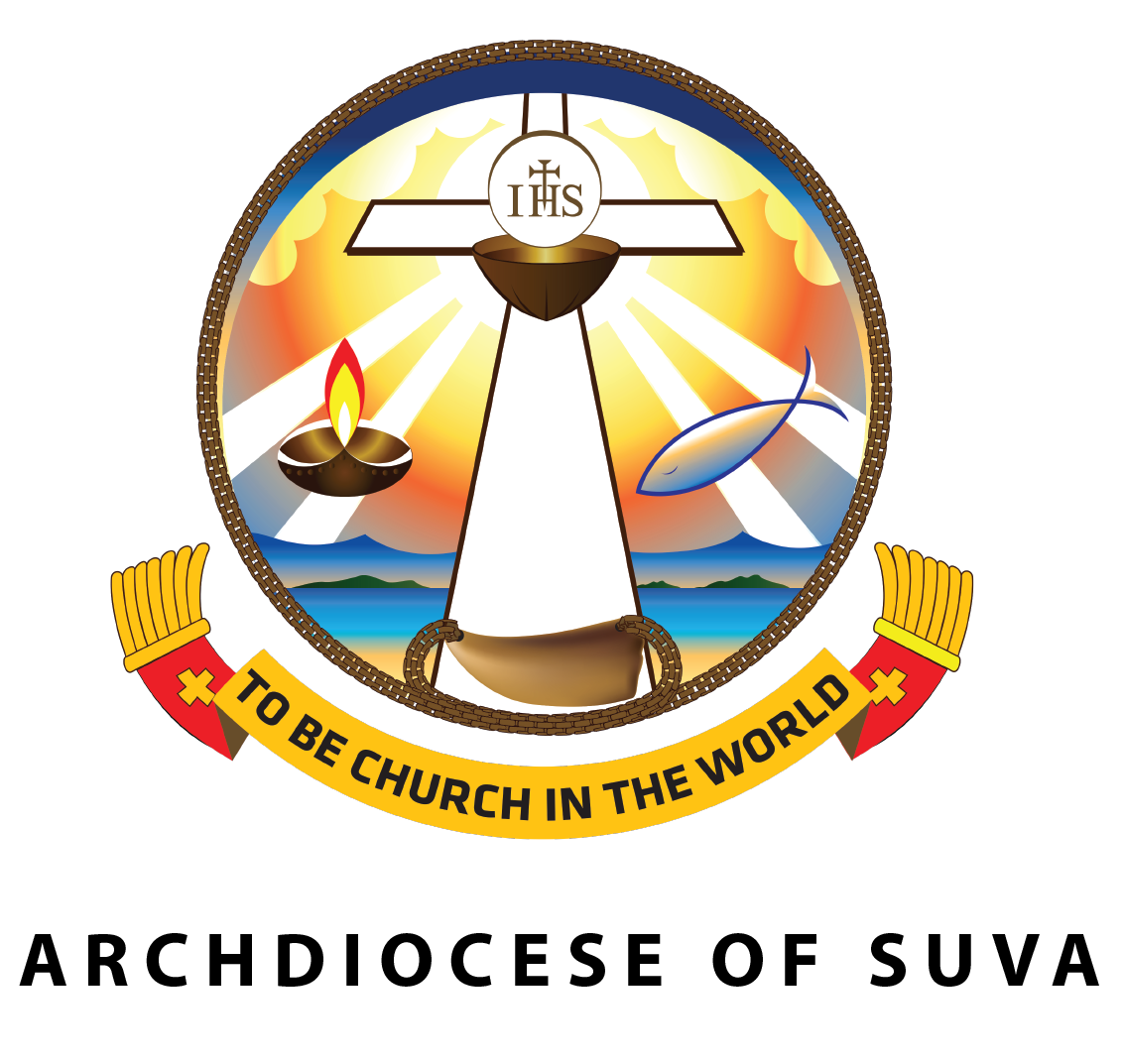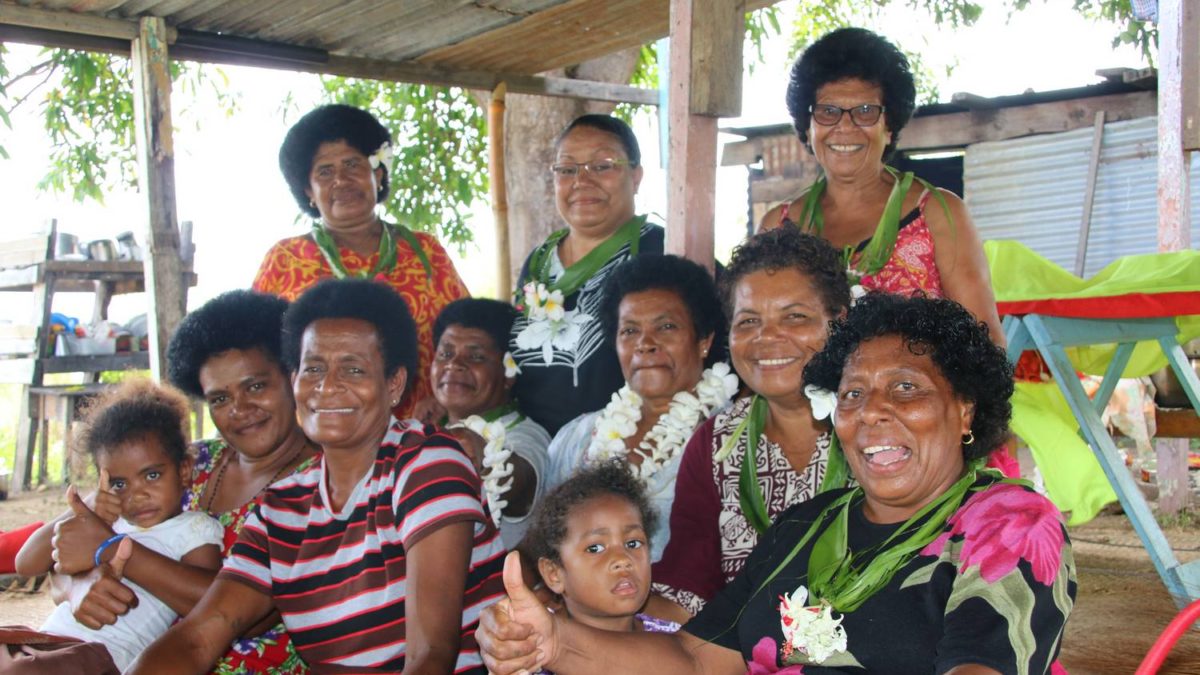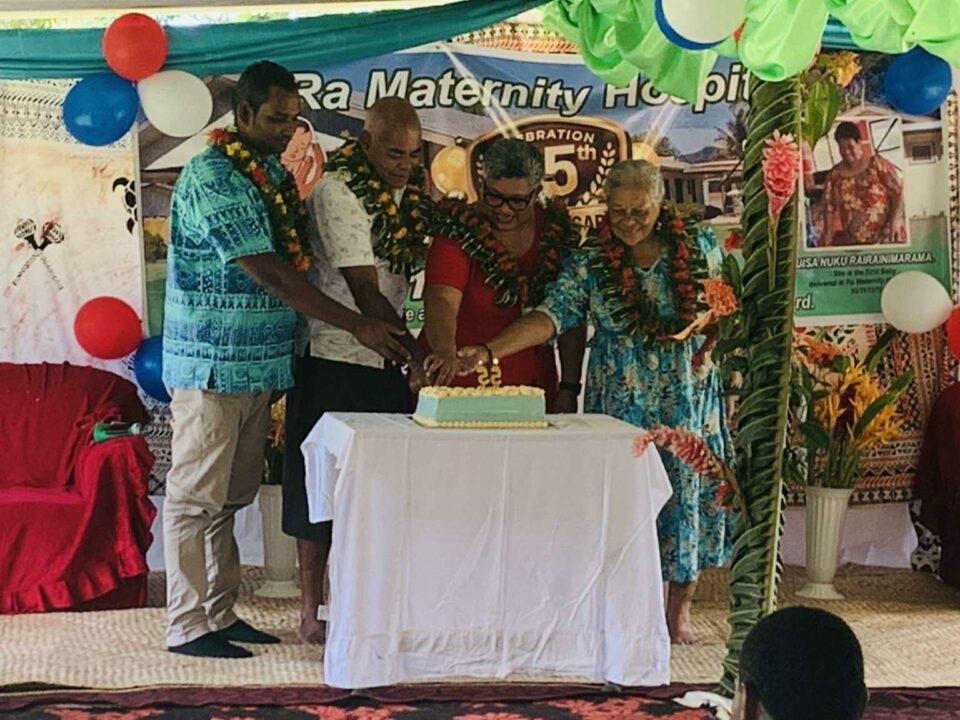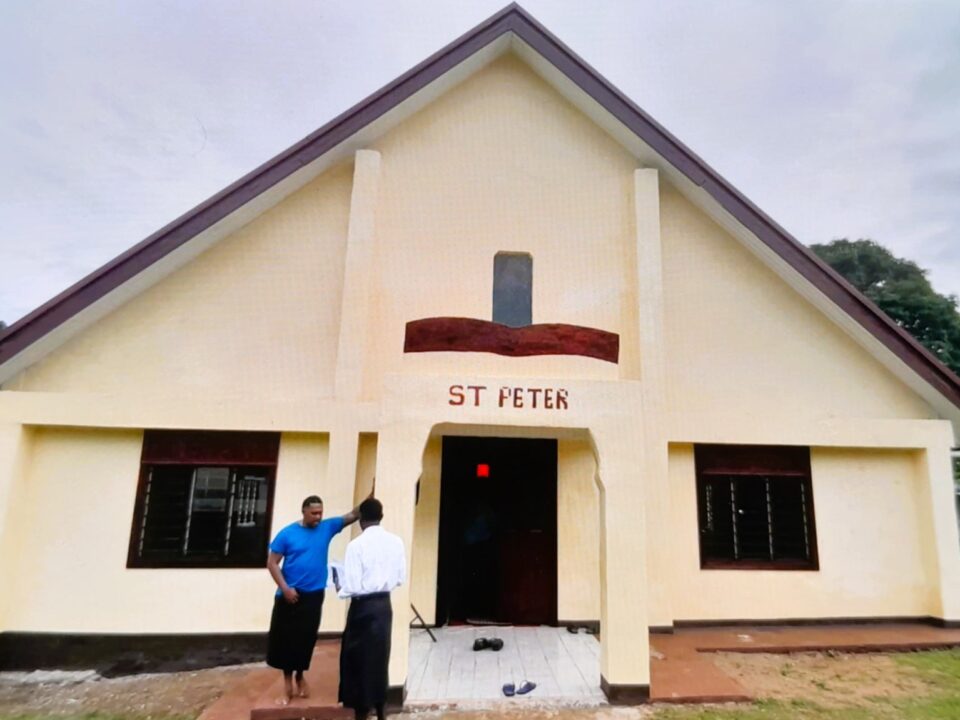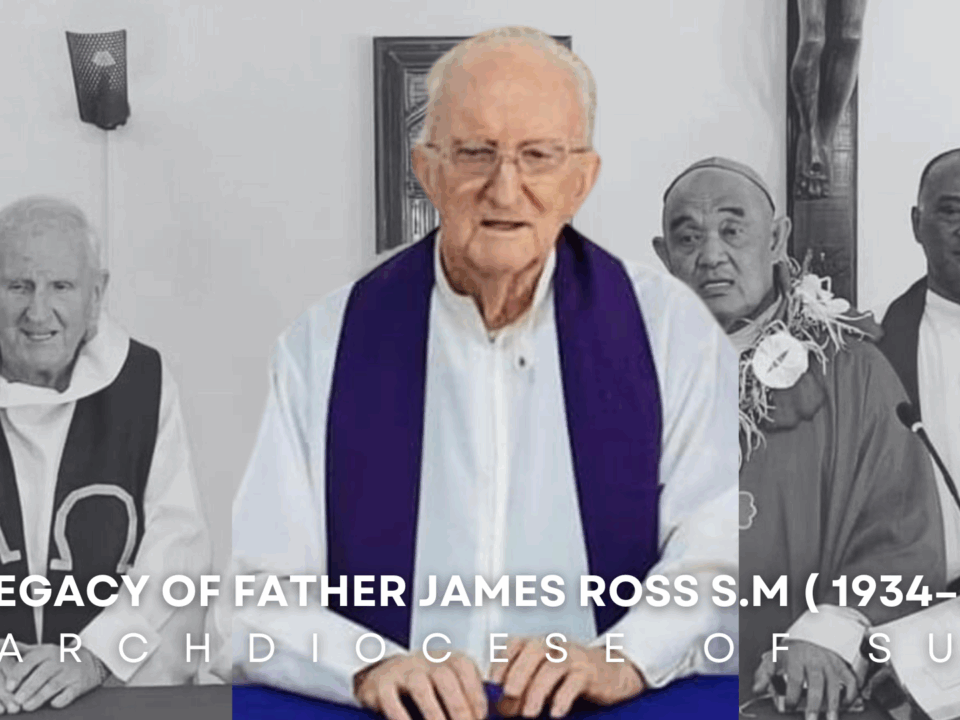The Fiji Catholic Church’s Submission to the Fiji 2020 Budget
The Fiji Catholic Church submission to the Fiji National Budget, expresses the mind of pastors, not public officials. As pastors we speak as moral teachers, not economic technicians. We seek not to make some political or ideological point but to lift up the human and ethical dimensions of economic life, aspects too often neglected in public discussion. We bring to this task a dual heritage of Catholic social teaching and traditional Fijian values of interconnectedness.
The Catholic submission also expresses the faith of Fijian Catholics. We are heirs of a long tradition of thought and action on the moral dimensions of economic activity. The life and words of Jesus and the teaching of his Church call us to serve those in need and to work actively for social and economic justice. As a community of believers, we know that our faith is tested by the quality of justice among us, that we can best measure our life together by how the poor and the vulnerable are treated. This is not a new concern for us. It is as old as the Hebrew prophets, as compelling as the Sermon on the Mount, and as current as the powerful voice of Pope Francis defending the dignity of the human person and care of Mother Earth.
Our submission does not embrace any particular theory of how the economy works or a political party’s manifesto; nor does it attempt to resolve the disputes between different schools of economic thought. Instead our submission turns to Scripture and to the social teachings of the Catholic Church. There, we discover what our economic life must serve, what standards it must meet.
The Catholic Social Teachings teach that “Every perspective on economic life that is human, moral and Christian must be shaped by three questions: What does the economy do for people? What does it do to people? And how do people participate in it?” We list below the principles that guide the Catholic Churches view of the economy. Then we will offer some reflections on Fiji’s economy.
The Catholic Social Teaching’s Principles Regarding the Economy
- The economy exists for the person, not the person for the economy.
- All economic life should be shaped by moral principles. Economic choices and institutions must be judged by how they protect or undermine the life and dignity of the human person, support the family and serve the common good.
- A fundamental moral measure of any economy is how the poor and vulnerable are faring.
- All people have a right to life and to secure the basic necessities of life, such as food, clothing, shelter, education, health care, safe environment, and economic security.
- All people have the right to economic initiative, to productive work, to just wages and benefits, to decent working conditions as well as to organize and join unions or other associations.
- All people, to the extent they are able, have a corresponding duty to work, a responsibility to provide for the needs of their families and an obligation to contribute to the broader society.
- In economic life, free markets have both clear advantages and limits; government has essential responsibilities and limitations; voluntary groups have irreplaceable roles, but cannot substitute for the proper working of the market and the just policies of the state.
- Society has a moral obligation, including governmental action where necessary, to assure opportunity, meet basic human needs, and pursue justice in economic life.
- Workers, owners, managers, stockholders and consumers are moral agents in economic life. By our choices, initiative, creativity and investment, we enhance or diminish economic opportunity, community life and social justice.
- The global economy has moral dimensions and human consequences. Decisions on investment, trade, aid and development should protect human life and promote human rights, especially for those most in need wherever they might live on this globe.
In light of the above principles of Catholic Social Teaching on the economy and Fiji’s context we make the following submissions:
- The Economy exists for the person, not the person for the economy.
ECONOMY
- We observe that some economic policies and activities serve the company and fail to serve the development of the human person and protect the environment, particularly the landowners and rural dwellers. We observe that extractive industries are damaging the ecosystem.
Human beings are part of the web of life. What we do to the web of life affects us as well. Extractive industries contribute to the loss of the biodiversity. The loss of biodiversity impacts food and economic sustenance of rural and indigenous communities. The unregulated business of extractive industries create poverty and scarcity of food. Our research show that some companies are damaging the ecosystem and thus contributing to bad economics. These are Gold Rock in Dawasamu, Amax in Votua, Free Soul in Malolo and Namosi Joint Venture. These companies are serving themselves while damaging the environment as well as creating poverty. These companies are practicing bad economics and should be stopped immediately before they cause further damage to people and the environment.
Fiji budget should invest more on renewable energy to reduce dependence on crude oil which is the contributing factor to carbon emissions.
We strongly recommend that the budget upholds the principles of sustainable development goals and the Catholic Church’s Teaching through Pope Francis’ Letter – Laudato Si on Care of Our Common Home.
- NIGHT CLUB HOURS
We request that night club close at 1am and not 4am. The 4am closing hour does not help young people, particularly itaukeis. This policy creates poverty among our young people who should be saving their money for their future. Moreover, drunkards sleep on the streets and park benches making our cities despicable.
- All economic life should be shaped by moral principles. Economic choices and institutions must be judged by how they protect or undermine the life and dignity of the human person, support the family and serve the common good.
FAMILY LIFE
The person is not only sacred but also social. How we organize our society – in economics and politics, in law and policy – directly affects human dignity and the capacity of individuals to grow in community. Marriage and the family are the central social institutions that must be supported and strengthened, not undermined. The family is the basic cell of society. The well being of the entire society absolutely depends on healthy families, committed marriages, and responsible parenthood. Family life is where people learn and practice the virtues of love and compassion.
Along the same vein, Confucius states; “To put the world in order, we must first put the nation in order; to put the nation in order, we must first put the family in order; to put the family in order; we must first cultivate our personal life; we must first set our hearts right.”
Fiji’s high rate of domestic violence and particularly when it takes place within family relationships points out clearly that family values are breaking down. From the Fiji statistics on domestic violence we deduce that many children are born into violent family environment. Hence young people resort to drugs to fill unmet emotional needs caused by lack of love and belonging.
Catholic Social Teaching suggests that any compassionate society will count the health of families as among the highest priorities on its policy agenda
The national budget should invest on marriage and family life – the fabric for a healthy society. The budget should also invest on youth formation that focus on developing a healthy understanding of sexuality and relationships.
- A fundamental moral measure of any economy is how the poor and the vulnerable are faring.
THE POOR
While some poverty statistics show that poverty is decreasing in Fiji, poverty remains a serious concern. Increasing statistics on prostitution, planting marijuana, and selling drugs are some indicators of poverty. There is a strong correlation between the level of education and the risk of poverty in Fiji. (Country Partnership Strategy: Fiji, 2014–2018).
Poverty statistics in Fiji show that the Northern Division remains the poorest of all the divisions, with some 45% of the occupants below the basic poverty line. Northern rural areas had the highest rate of rural poverty (51%, despite a decline from 57%), while Northern urban areas had the highest rate of urban poverty (38%). Overall though, the highest concentration of poor people is in urban and peri-urban areas. (ibid)
The statistics above show that poverty centers around urban and peri-urban communities. The urban-drift is one of the reasons behind this.
Recommendation regarding poverty:
- The budget must take a serious commitment to the welfare of the poor and vulnerable in Fiji.
- The budget should invest on the alleviation of poverty and introduce education that will assist rural education drop-out. We recommend that the government duplicate the Marist Training Center for Young Farmers and Rural Young Girls course which is good program to curb poverty.
- We also request that the budget increase allocation for HART, Fr Law Home, Home of Compassion, Dilkusha Home and other homes for the poor.
- The Budget should ensure that all workers are paid the basic hourly wage for unskilled and poorly paid workers.
- All people have a right to life and secure the basic necessities of life, such as food, clothing, shelter, education, health care, safe environment, and economic security.
EDUCATION
Our Catholic schools report that the current Free Education Grant (FEG) and restrictions on fundraising prevent the school management meet the maintenance and development costs of the school. This policy limits our communities to exercise their constitutional rights regarding education.
Our Catholic Social Teaching upholds the principle of subsidiarity. Subsidiarity means nothing should be done at a higher level that can be done well or better at a lower level.
According to the Catechism of the Catholic Church, the principle of subsidiarity states that “a community of a higher order should not interfere in the internal life and community of a lower order.” They should act always with the view to the common good of society, which means not depriving local authorities of their initiative, participation and power.
The higher order should only be involved in those tasks that cannot be carried out at the local level.
Individual participation is required. Subsidiarity gives responsibility over to the individuals and local communities to work towards the common good. The common good is not only the responsibility of the state. It must be pursued by all people at all levels of society.
We request that Ministry of Education observe the principle of subsidiarity by allowing schools to collect fees, plan their own fund-raising so that they will have sufficient funds for development and provide financial assistance only to students from poor families.
- All people, have the right to economic initiative, to productive work, to just wages and benefits, to decent working conditions as well as to organize and join unions or other associations.
WORKERS UNION
The Fiji Constitution protects the rights of trade unions and workers in Fiji. However, these rights have been limited.
Catholic Social Teachings supports labor unions and teachers that workers have the right to enter into collective bargaining with their employers. In this way they are able to protect their human and workers’ rights to participate fully in the political and economic life of society. Recognition of workers’ rights and the importance of good working condition are essential to the proper operation of the economy.
- In economic life, free markets have both clear advantages and limits; government has essential responsibilities and limitations; voluntary groups have irreplaceable roles, but cannot substitute for the proper working of the market and the just policies of the State.
We acknowledge the contribution of government in the economic life of the Nation, however, government should stringently regulate market and business to benefit the people as well as protecting the environment. We notice that some business enterprises are only serving themselves while impoverishing local peoples and damaging the environment.
- Society has moral obligation, including government action where necessary, to assure opportunity, meet basic needs, and pursue justice in economic life.
ECONOMY- MIGRATION – BRAIN DRAIN
Studies by Manoranjan Mohanty on Globalisation, New Labour Migration and Development in Fiji show that both the I Taukeis and Indo-Fijians are emigrating in large numbers. While emigration contributes to the Fijian economy by way of foreign remittance, it remains an economic question. Migrations includes the loss of Fijian skilled workers. Why are Fijians leaving Fiji? We invest a lot on education and unfortunately some other country benefits. How can we keep our skilled and educated workers in Fiji? It is obvious that other countries are offering better wages and working conditions to Fijian skilled workers.
We recommend that the budget and the government carry out an in-depth study of emigration and brain-drain – loss of investment.
DISASTER RESPONSE
We request that the government supports Religious communities’ pshyco-spiritual responses to disaster. Disaster responses have been limited to monetary and physical needs. The human person is also a social and spiritual being. We hold disaster responses should also meet the psychological, social and spiritual needs of our vulnerable communities.
We request that the budget allocates funds for the psycho-social-spiritual responses.
As schools re-open, the Catholic Church has put in place a psycho-social-spiritual process to help teachers and students address their experiences and feelings during the lockdown. Domestic violence is on the rise as well.
We recommend that the budget invests on the psycho-social-spiritual dimensions to natural and human-made disasters.
- Workers, owners, managers, stockholders, and consumers are moral agents in economic life. By our choices, initiatives, creativity and investment, we enhance or diminish economic opportunity, community life and social justice.
We request that the budget avoids the ‘hand-out approach’ to assistance and development because it diminishes people’s creativity and instead creates a ‘dependency syndrome’. This Chinese proverb explains what an effective human development program should look like: ‘Give a man a fish, and you feed him for a day. Teach a man to fish, and you feed him for a lifetime.’
We recommend again the Marist Training Center ‘Young Farmers and Girls Program’ in Tutu, Taveuni as model for holistic rural youth development. This program should be duplicated in rural areas.
- The global economy has moral dimensions and human consequences. Decisions on investment, trade, aid and development should protect human life and promote human rights, especially for those most in need wherever they might live on this globe.
CLIMATE CHANGE
Fiji and small island nations are victims of climate change. Fossil fuel and carbon emission are leading contributors to global warming and climate change. First World Countries are the main contributors to global carbon emission. Fiji and Island nations can contribute to resolving climate change problems by informing the world, especially First World Countries on their experiences and stories of natural disasters, sea level rising, re-location, loss of food security and income, and loss of cultural identity. Studies of climate change show that we have lost our interconnectedness. Island nations know what it means to live in relation to the land and sea. We can teach the world how to live and protect the interconnectedness of creation.
To contribute to curbing climate change, the budget should invest on research and telling our stories to the global communities.
We thank the Fiji Government for their commitment to keeping Fiji covid19 free. May God’s wisdom guide the Minister of Economy and his consultors to prepare a budget the serves the common good and the care of our Mother Earth.
Yours sincerely
Archbishop Peter Chong
On behalf of the Roman Catholic Church in Fiji.
